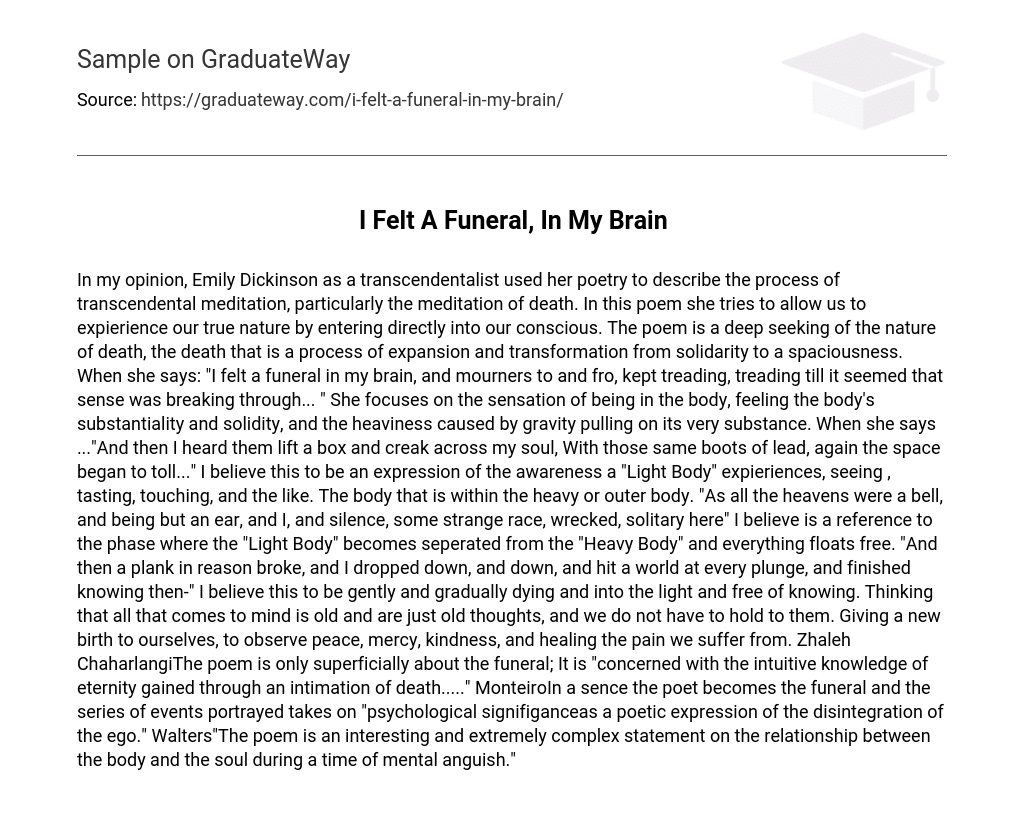According to my perspective, Emily Dickinson, being a transcendentalist, utilized her poetry to depict the act of transcendental meditation, specifically focusing on the meditation regarding death.
The poem aims to connect us with our true selves by delving into our consciousness. Its main focus is on exploring the nature of death, which is portrayed as a process of expansion and transformation from being solitary to becoming more open and spacious. By saying “I felt a funeral in my brain, and mourners to and fro, kept treading, treading till it seemed that sense was breaking through…,” the poet highlights the sensation of being fully present in the physical body and feeling its solidity, as well as the weightiness caused by gravity pulling on its substance. The line “And then I heard them lift a box and creak across my soul, With those same boots of lead, again the space began to toll…” could be interpreted as an expression of the heightened awareness experienced by a “Light Body,” perceiving things through senses like sight, taste, and touch.
The passage suggests that the inner self, referred to as the “Light Body,” becomes detached from the physical body, or “Heavy Body,” allowing for a sense of freedom. The lines “As all the heavens were a bell, and being but an ear, and I, and silence, some strange race, wrecked, solitary here” capture this idea. They convey the experience of being alone in a new existence. Another statement in the text, “And then a plank in reason broke, and I dropped down, and down, and hit a world at every plunge, and finished knowing then-” describes a gradual descent into death and the subsequent release from worldly knowledge. It suggests that all our thoughts are old and unnecessary burdens that we can let go of.
Giving ourselves a new birth, to observe peace, mercy, kindness, and healing the pain we suffer from (Zhaleh Chaharlangi). The poem is superficially about the funeral but is also concerned with the intuitive knowledge of eternity gained through an intimation of death (Monteiro). In a sense, the poet becomes the funeral and the series of events portrayed takes on psychological significance as a poetic expression of the disintegration of the ego (Walters). The poem is an interesting and extremely complex statement on the relationship between the body and the soul during a time of mental anguish (Walters).





